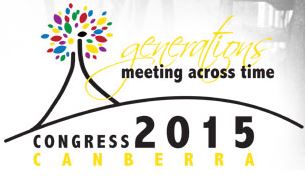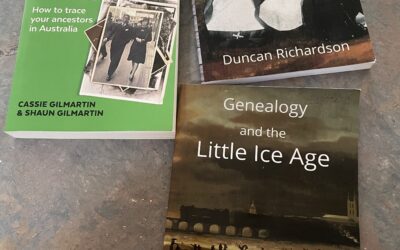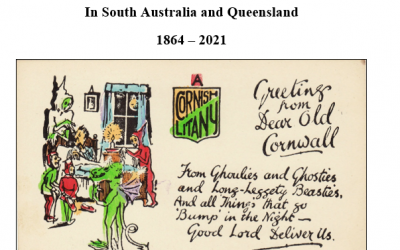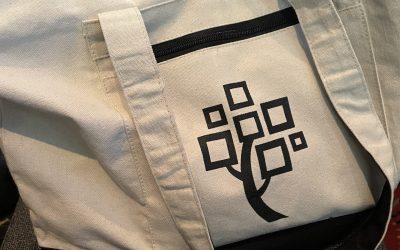 As one of the official AFFHO Congress 2015 bloggers, it is my pleasure to interview speakers and learn more about them prior to the Congress in Canberra in March 2015. Organised by AFFHO (Australasian Federation of Family History Organisations), Congress is only held every three years. It attracts some of the best speakers in Australasia and overseas, hundreds of keen family history enthusiasts and lots of trade exhibitors and without doubt is the major genealogy, family history and heraldry event in Australasia. See the program here and for information on sponsors and exhibitors see here.
As one of the official AFFHO Congress 2015 bloggers, it is my pleasure to interview speakers and learn more about them prior to the Congress in Canberra in March 2015. Organised by AFFHO (Australasian Federation of Family History Organisations), Congress is only held every three years. It attracts some of the best speakers in Australasia and overseas, hundreds of keen family history enthusiasts and lots of trade exhibitors and without doubt is the major genealogy, family history and heraldry event in Australasia. See the program here and for information on sponsors and exhibitors see here.
Previous interviews – Richard Reid, Sue Reid, Michelle Nichols, Robyn Williams
This is the fifth post in my series of interviews – speaker Kate Bagnall
Questions
SH: Are you a genealogist, researcher, historian or representing your organisation?
KB: I am a historian, writer and editor who runs a small consultancy in Canberra. I am also a Visiting Researcher in the School of Culture, History and Language in the ANU College of Asia and the Pacific.
SH: I wonder if you could tell us a little about your background?
KB: When I was living in the southern Chinese city of Zhuhai in the late 1990s, I became interested in the historical connections between Australia and south China and decided to pursue a PhD that explored these connections. My doctoral research was a study of Anglo-Chinese families in colonial New South Wales, the first major historical study of the Chinese family in Australia. One of my particular research interests is the experiences of Australian wives of Chinese men and their children who travelled to China in the late nineteenth and early twentieth centuries. I’ve published on aspects of Chinese Australian history in scholarly journals, edited collections, family history magazines and online, and am currently working on a book manuscript. I first travelled to China when I was fourteen and have visited many times since, including longer periods working, researching and studying at university.
SH: How has history improved or changed your life?
KB: My love of history has taken me places and introduced me to people and things I could never have imagined, from traipsing about in rural China to burying myself in archives.
SH: What do you love most about history?
KB: My work on Chinese Australian families is very personal, with reflections in my own life but also with great meaning for the descendants I meet. Because of the discrimination Chinese Australians faced in the late ninetieth and early twentieth centuries many mixed Chinese-European families chose to hide or deny their Chineseness. The best part of doing what I do is hearing from people that I’ve made a difference in their understanding of their own family’s past.
SH: Have you previously attended Congress?
KB: This will be my first time attending Congress.
SH: What are your key topics for Congress?
KB: I will be speaking on Chinese Australian family history. My first talk will provide an overview of the history of Chinese families in colonial Australia, while the second will be of interest to people wanting to know more about the Chinese origins of pre-WWII Chinese in Australia. In particular, in my second talk I’ll be looking at how to use Australian sources to track people back to their Chinese origins.
SH: How do you think your topics will help the family historians at Congress 2015?
KB: While my talks will certainly appeal to people with a Chinese ancestor in their family tree, I hope that other family historians might attend to hear a bit about one of Australia’s oldest migrant groups. In south-eastern Australia almost every large country town had at least some Chinese residents, perhaps a Chinese storekeeper and his family or market gardeners who provided fresh produce. And as I’ve found out in researching my own English-Scottish ancestors, Chinese connections can turn up in surprising places.
SH: What do you think are the benefits of attending a large conference like this for you personally and for others attending?
KB: Hearing talks that aren’t directly on your own topic can spark your imagination or provide clues to puzzling research questions. There’s always something new to learn!
SH: Do you have a favourite piece of advice or a tip or trick you can share with conference attendees?
KB: Be creative with your spelling when you do searches using people’s names, particular when researching Chinese Australian families. Names were often written down how they sounded, rather than by any particular fixed spelling, so the more variations you can think of to search with the more luck you may have in finding relevant material. For example I’ve found records relating to one early Chinese resident of New South Wales under the names Man Sue Bach, Mum Shou Pac, John Ah Shue Bach, John A. Sue Bach, John Ah Sue and John a Shue.
SH: Is there somewhere we can connect with you online?
KB: I blog about my research and Chinese Australian history more generally at http://chineseaustralia.org. I’m also @baibi on Twitter.
Thanks Kate for sharing your thoughts with us.
Over the next few months I will be bringing you more interviews with Congress speakers. My official blogging team partners Jill Ball and Pauleen Cass will be doing similar interviews and we will bring you news of Congress as it comes to hand. I am looking forward to catching up with and making new geneamates as well as attending some great speaker sessions next March. Hope to see you there too.





0 Comments
Trackbacks/Pingbacks